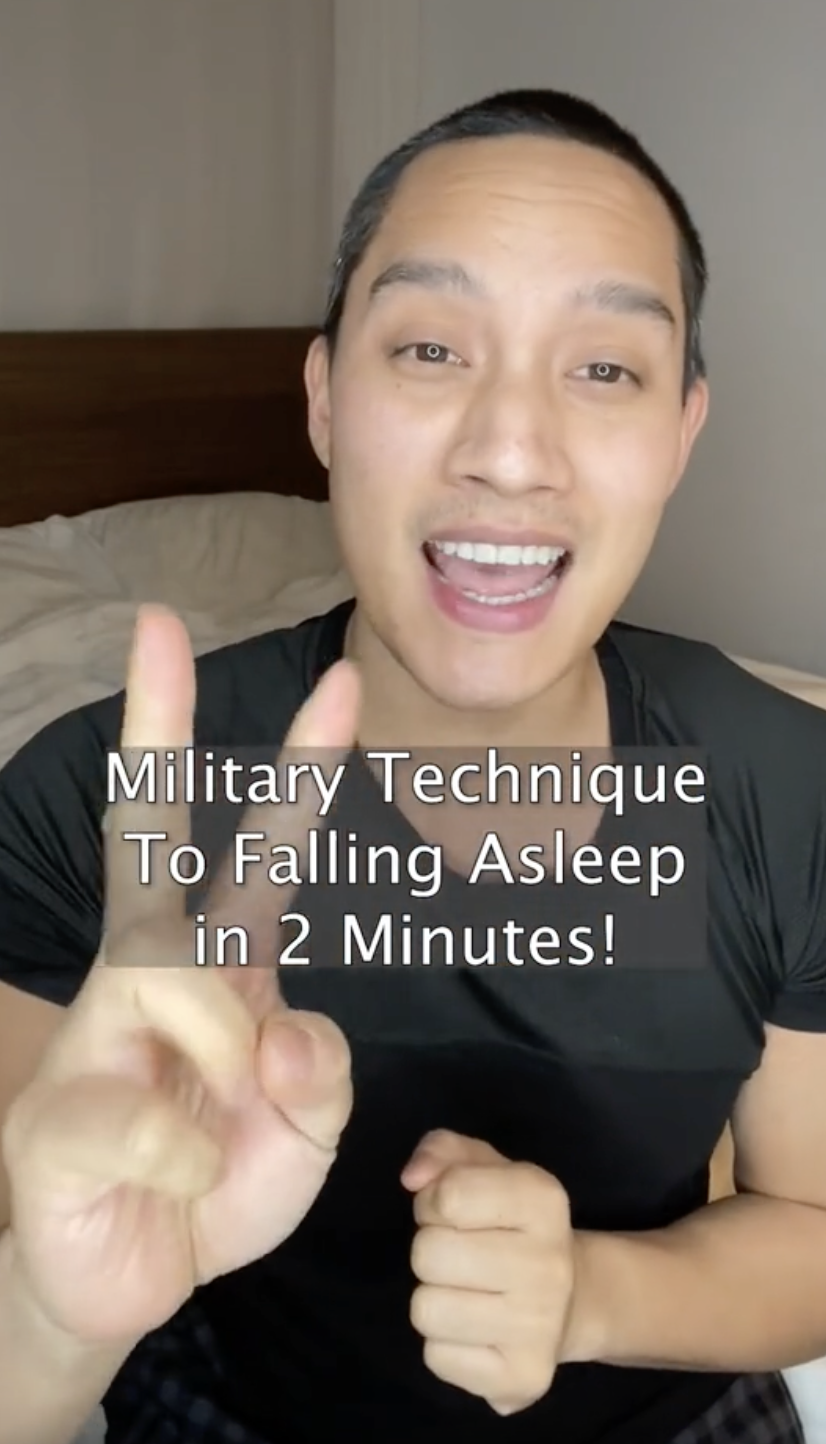The military sleep method, which apparently works for 96% of people, promises to send you to sleep within two minutes.
Many of us have problems with getting to sleep.
Lying in bed with your mind racing, counting down the hours until you have to get up again can be one of the most anxiety-inducing experiences out there.
And the most frustrating part is, the harder you try to fall asleep, the more sleep just seems to elude you.
But now, a method inspired by the military, which claims to send people off to sleep in under two minutes, is taking the internet by storm.

Justin Agustin, a fitness and health influencer, has brought the military sleep method to the masses.
He claims that it will send people to sleep in under two minutes – and, even more impressively, it apparently works for over 96% of people!
Since Agustin has shared the method on his TikTok page, people have been offering their own personal experiences in the comments section.
One writes: “I’m a military brat and was taught this. I also had a veteran as a psychology teacher in college who taught this. It definitely works.”
Another adds: “I’ve got really bad insomnia and nothing works. I get some sleep with a lot of meds, but I never wake up rested. I’m trying this tonight.”
While a third attests: “My mom taught me this and I taught my children. My son has many challenges and this helps him relax and fall asleep quickly, he’s 9.”

So, what is the military sleep method?
Well, as reported by Glamour, “It was created specifically for soldiers in the US military and is geared to work even in intense environments – like a literal battlefield.”
And, as per Medium, it’s explained in the 1981 book ‘Relax and Win: Championship Performance,’ written by American track and field coach Lloyd Bud Winter.
And even more importantly, how do you try out this method at home?
Well, there are six quick steps to follow, Forces claims.

First, you must relax your entire face. Close your eyes. Breathe slowly and deeply. Then slowly relax all of your facial muscles.
Next, drop your shoulders and hands. Let go of any tension, starting at your shoulders, and then moving down your bicep, forearm, and hand.
Thirdly, you should exhale and relax your chest, keeping your shoulders and arms relaxed.
Then, you need to relax your legs in the same way you did your arms. Start with your thigh, then your calf, then your ankle, and then your foot.
You should then try to totally clear your mind. Focus on a relaxing image and hold it in your mind’s eye.
However, if you can’t keep your mind from wandering, try repeating the words ‘don’t think’ in your brain for ten seconds at a time.
@justin_agustin Technique to falling asleep in 2 minutes! Insp. AsapSCIENCE on YT #sleep #fallasleep #insomnia #insomniac #learnontiktok #howto ♬ You – Petit Biscuit
Related Article: People Mind-Blown After Discovering What Yellow ‘Sleep’ In Eyes When You Wake Up Actually Is
Related Article: Doctor Explains Why Just 5 Hours Of Sleep Per Night Can Lead To ‘An Early Death’
Do you have a story for us? If so, email us at [email protected]. All contact will be treated in confidence.





